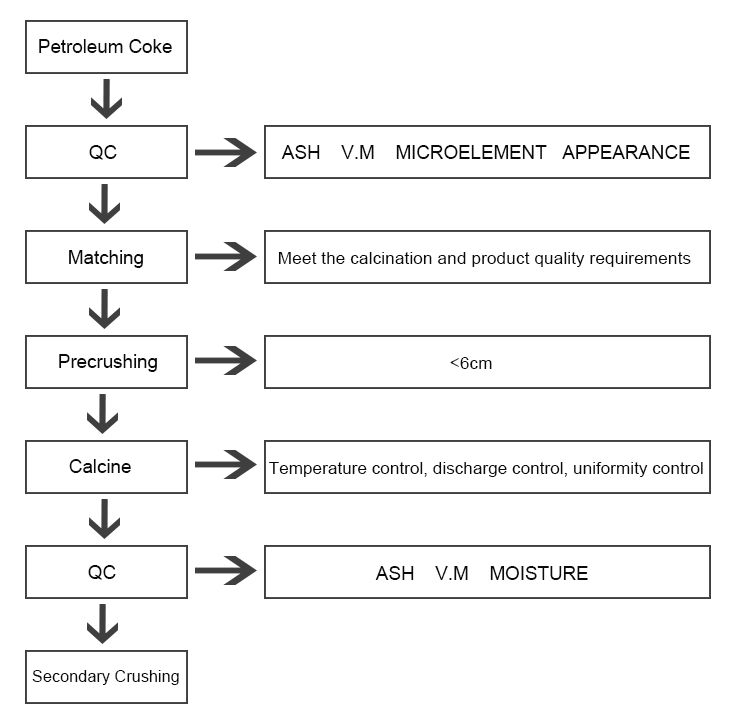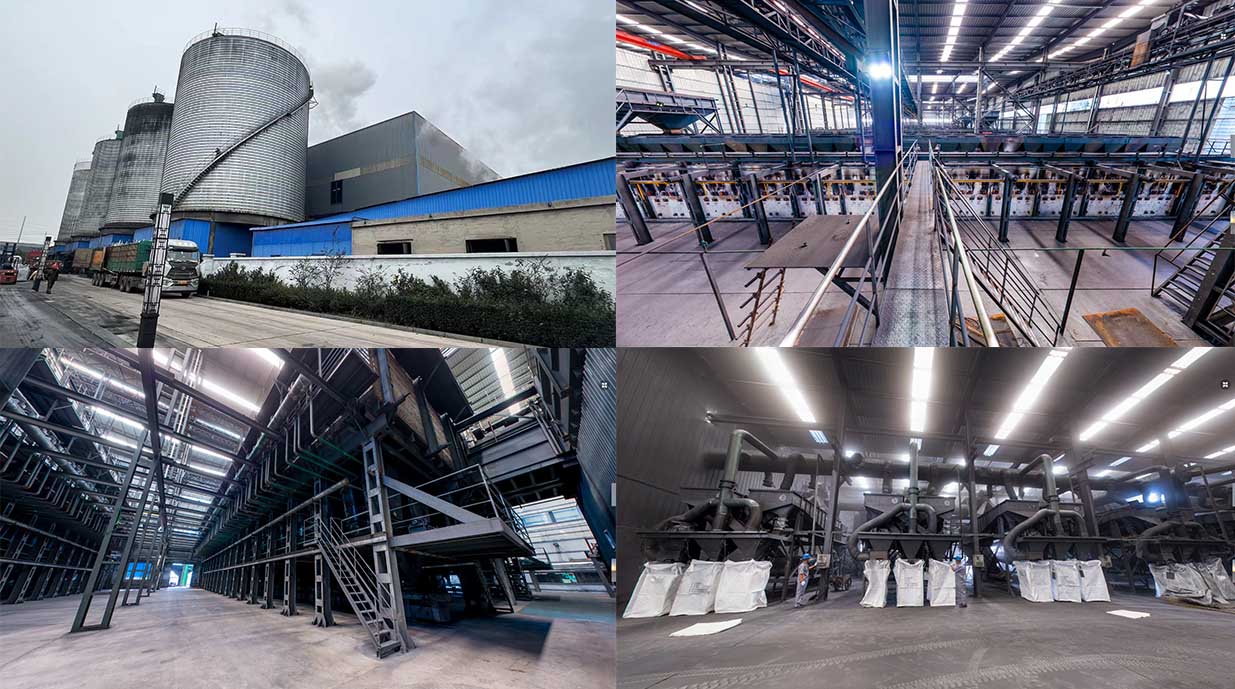Calcined Petroleum Coke Aluminium Industry
Carbon Content: Calcined petroleum coke serves as the primary raw material for the production of graphite electrodes. Graphite electrodes require a high carbon content, typically between 98% and 99.5%, to provide the necessary electrical conductivity during the steelmaking process. CPC, with its high carbon content, provides the base carbonaceous material needed to manufacture graphite electrodes.
Binder and Filler: CPC acts as a binder and filler in the manufacturing process of graphite electrodes. It is combined with other materials, such as petroleum pitch and coal tar pitch, to form a paste-like mixture. This mixture is then extruded into a specific shape and baked at high temperatures to convert it into a solid graphite electrode.
Electrical Conductivity: The high carbon content of CPC contributes to the excellent electrical conductivity of graphite electrodes. During the steelmaking process, graphite electrodes serve as conductive elements, allowing the passage of high electrical currents through the electric arc furnace. This electrical conductivity is essential for maintaining the required temperatures and facilitating the melting and refining of steel scrap or other raw materials.
Thermal Resistance: Calcined petroleum coke possesses high thermal resistance, allowing graphite electrodes to withstand the extreme temperatures encountered in electric arc furnaces. The electrodes are exposed to intense heat during the steelmaking process, and their thermal stability is crucial to prevent structural damage or deformation.
Low Impurity Content: The quality of the CPC used in graphite electrode production is crucial to ensure the desired performance and durability. Low impurity levels in the calcined coke, such as sulfur, ash, and volatile matter, are essential to maintain the electrode's stability and minimize undesirable reactions or contaminations during steel production.
Graphite electrodes, with the help of calcined petroleum coke, provide the necessary electrical conductivity, thermal resistance, and mechanical strength required for efficient and reliable steelmaking in electric arc furnaces.
Advantage to using Calcined Petroleum Coke in graphite electrode
Calcined coke is a crucial material in the production of graphite electrodes, which are widely used in electric arc furnaces for steelmaking and other high-temperature industrial processes. The benefits of using calcined coke in the production of graphite electrodes include:
High carbon content: Calcined coke has a high carbon content, typically above 98%, making it an excellent choice for graphite electrode production. Graphite electrodes need to be highly conductive to withstand the extreme temperatures and electrical currents in electric arc furnaces. The high carbon content ensures good electrical conductivity, allowing for efficient heat transfer during the steelmaking process.
Low impurity levels: Calcined coke is processed to have low impurity levels, particularly sulfur, nitrogen, and metals. Low impurity content is crucial in graphite electrodes, as impurities can lead to reduced electrical conductivity and compromised performance during steelmaking.
High mechanical strength: Graphite electrodes must have adequate mechanical strength to withstand the mechanical stresses and thermal shocks experienced during steelmaking. Calcined coke provides the necessary structural integrity to resist breakage and deformation under these harsh conditions.
Excellent thermal conductivity: Calcined coke-based graphite electrodes have high thermal conductivity, enabling them to efficiently transfer heat to the steel bath in the electric arc furnace. This enhances the melting process and improves energy efficiency.
Low coefficient of thermal expansion: Graphite electrodes made from calcined coke have a low coefficient of thermal expansion. This property helps maintain the structural integrity of the electrodes, even at high temperatures, reducing the risk of cracking or breaking during operation.
Oxidation resistance: Calcined coke-based graphite electrodes exhibit good oxidation resistance, which is essential when operating in oxygen-rich environments at elevated temperatures. This property extends the electrode's service life and ensures consistent performance over time.
Cost-effectiveness: Utilizing calcined coke in the production of graphite electrodes can lead to cost savings due to its relatively lower price compared to other carbonaceous materials. This cost-effectiveness contributes to the overall competitiveness of steelmaking operations.
Recycling opportunities: Calcined coke is often produced from petroleum coke, which is a byproduct of oil refining. Using calcined coke in graphite electrode production helps recycle this byproduct, making the process more sustainable and reducing waste.
In conclusion, the use of calcined coke in the production of graphite electrodes provides numerous advantages, including high carbon content, low impurity levels, excellent thermal and electrical conductivity, mechanical strength, oxidation resistance, and cost-effectiveness. These properties make graphite electrodes highly efficient and durable for use in electric arc furnaces and other high-temperature industrial applications.










